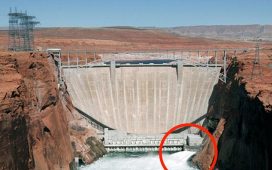(Reuters) – An Iranian rocket exploded on its launch pad at Imam Khomeini Space Center in northern Iran before its scheduled launch on Thursday, an Iranian official said.
A satellite image shows what U.S. officials say is the failed Iranian rocket launch at the Imam Khomeini Space Center in northern Iran August 29, 2019. Mandatory credit Satellite image ©2019 Maxar Technologies/Handout via REUTERS
The launch was due to have taken place despite U.S. warnings to Iran that it should avoid such activity.
“It was due to some technical issues and it exploded but our young scientists are working to fix the problem,” the Iranian official told Reuters, speaking on condition of anonymity. He gave no further details.
A U.S. official, also speaking on condition of anonymity, also said that Iran suffered a satellite launch failure.
The United States, Iran’s long time foe, fears long-range ballistic technology used to put satellites into orbit could also be used to launch nuclear warheads.
Tehran denies the U.S. accusation that such activity is a cover for ballistic missile development.
Satellite imagery published by the Planet Labs Inc. showed a black plume of smoke rising above a launch pad in the center.
An Iranian attempt to launch a satellite failed in January, Iran’s Minister of Communications and Information Technology Mohammad Javad Azari-Jahromi said.
Jahromi has said that Iran would launch three satellites into orbit by March despite U.S. pressure to curb Tehran’s ballistic missile program.
In mid-August, he said Iran was preparing to launch a locally built telecommunications satellite named Nahid 1 (Venus 1).
Iran launched its first satellite Omid (Hope) in 2009 and its Rasad (Observation) satellite was also sent into orbit in June 2011. Tehran said in 2012 that it had successfully put its third domestically-made satellite Navid (Promise) into orbit.
Writing by Parisa Hafezi; Editing by Angus MacSwan














